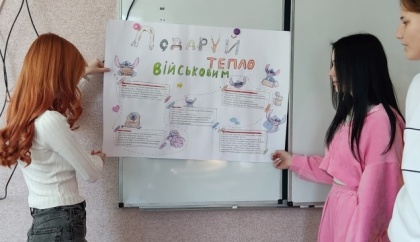
The School DOCU/WEEK, which centered on human rights and volunteering, concluded in various Ukrainian educational institutions on the eve of the Volunteer Day. The project was initiated by the DOCU/CLUB Network of film clubs, which invited educators to screen films about volunteering in their classes and, most importantly, to engage in discussions about these films with their students. What is the impact of this educational tool? How does documentary cinema influence schoolchildren?
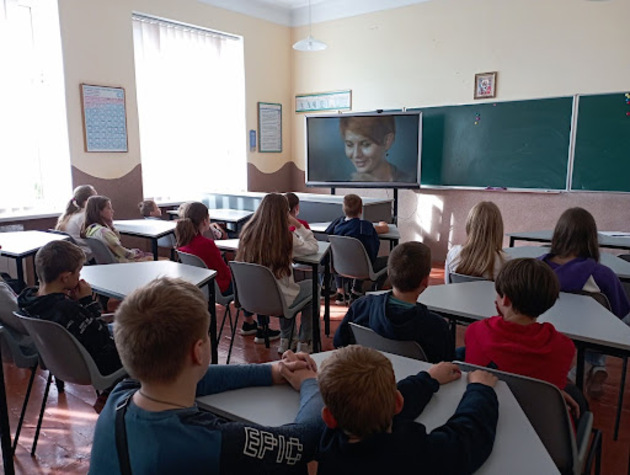
Pupils watch the film Language
Anastasiya Rozlutska, a volunteer whose experience is not limited to war-related issues, says: “Documentary films transform education and foster the development of volunteering at schools.” How does this really occur? It's not the usual activity found in a typical wartime school, such as extracurricular “net weaving” or mandatory “volunteer fairs.”
Nastya is known as a language activist who has long coordinated the activities of the Free Ukrainian Language Courses initiative, and as protagonist of the documentary film Language by Serhiy Lysenko. She emphasizes that it is crucial for her not only to change the social landscape of the country but also to consider the next generations of volunteers.
How does this look in contemporary schools? A typical wartime school would offer such volunteering activities as extracurricular weaving of masking nets or mandatory volunteer fairs.
However, the format of school lessons often does not align with modern perspectives on education and communication with young people. Communication between teachers and students cannot be limited to the blackboard, even an interactive one.
Can films help influence schoolchildren’s views and beliefs? “The DOCU/WEEK is not just about watching films. It is a new way of engaging with pupils on important topics. As part of this initiative, teachers used documentaries to discuss human rights, volunteering, and social responsibility,” explains Anastasiya.
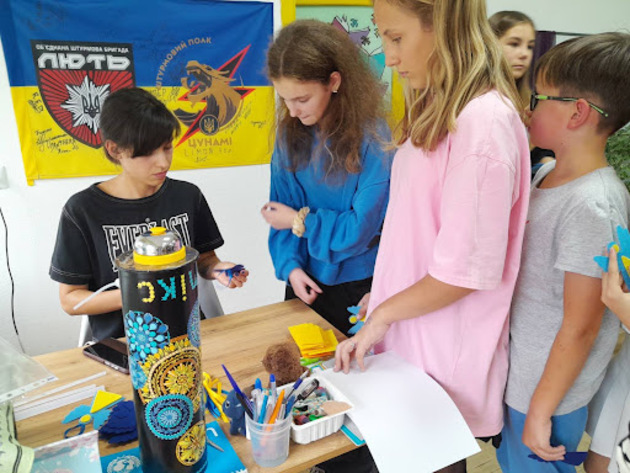
Schoolchildren discuss volunteering opportunities
This project, in which the DOCU/CLUB Network encourages Ukrainian teachers and school groups to view formal subjects from an informal perspective, took place for the third time already. This year, 449 schools participated in the initiative, reaching out to tens of thousands of schoolchildren. For many of them, volunteering has become more comprehensible and may eventually become a part of their lives. According to data, 20-40% of the global population engages in volunteering. In Ukraine, this percentage has doubled from 20% to 40% since the beginning of the full-scale invasion, which is a significant increase.
What is the School DOCU/WEEK? For educators, it is an opportunity to conduct lessons and discussions on volunteering and civic activism with pupils, focusing on one of the three selected documentaries.
This year, pupils could watch the film Language by Serhiy Lysenko, dedicated to the Free Ukrainian Language Courses. Another film by Lysenko, Euromaidan SOS, recounts the origin of its namesake civic initiative. “Euromaidan SOS” was originally a hotline for those affected by the Euromaidan protests, coordinated by volunteer and, subsequently, Nobel Prize laureate Oleksandra Matviychuk.
The film Tales of a Toy Horse by Ulyana Osovska and Denys Strashnyi tells the story of Anatoliy Liutyuk, an artist and monk in the world, who left his Tallinn cell at the beginning of the war in 2014 to volunteer in frontline towns in Ukraine.
Each of the films presents a unique story. Pupils and teachers not only learned about various aspects of volunteering but also discussed the themes of documentary films and human rights. They also had the opportunity to engage with the protagonists and creators of the films.
Teachers may not always have the time or ideas to discuss how volunteering has changed and evolved, or to integrate the topic into their subject areas. However, who can tell about this better than the volunteers themselves? Moreover, teachers are also active participants in this initiative. The films helped teachers facilitate informal conversations about volunteering with their pupils.
TEACHERS: FILMS ARE A BRILLIANT IDEA
Nataliya Dobryanska, teacher and coordinator of the School DOCU/WEEK, states: “Recently, my colleagues and I were discussing a trend among schoolchildren: at a certain stage, interest in volunteering, even in weaving of masking nets, seemed to have decreased. However, after these discussions in schools and film screenings, my colleague noticed that high schoolers would attend the meetings more often and ask more questions. For example, a 15-years-old boy asked how to create his own volunteer organization. He said: ‘I’ve watched and listened and I want to try it myself."
Nataliya acknowledges that the effect of such communication with students will neither be immediate nor overwhelming; not everyone will instantly start proposing the ideas they discussed. However, the fact that children are asking questions and showing interest is already a significant result.
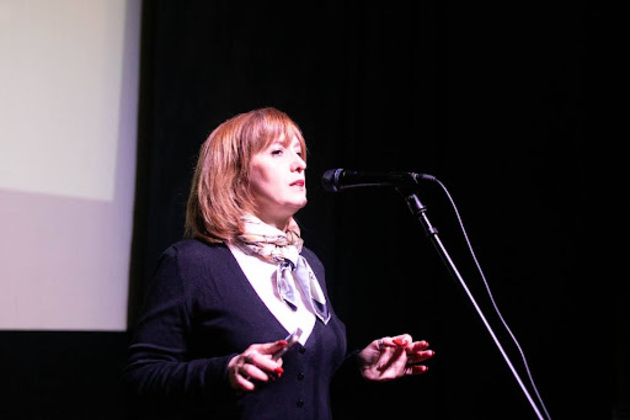
Nataliya Dobryanska, teacher and coordinator of the School DOCU/WEEK.
Natalia Dobrianska shared another example: “After a screening, one of my colleagues complained, ‘We should have a lesson with a volunteer, but where can we find one?’ I started laughing and asked, ‘Ms. Oksana, do you weave masking nets at school?’ She replied, ‘Yes, I organize everyone.’ I then said, ‘And you don't know who to invite yet? Parents at your school are also actively involved in volunteering!’ She thought about it and said, ‘You’re right, this idea was even in the film. We have a mom who weaves nets. We can invite her to conduct a lesson!’ Films are brilliant; they spark ideas. Sometimes people don't realize there are volunteers around them who can share their experiences.”
In general, Dobryanska noted that while volunteering is not a mandatory part of education, many schools actively engage in it through activities such as fundraising, writing letters to the front, and weaving nets. Therefore, the organizers aimed to explain the foundation of the volunteer movement to pupils, showing them the various aspects of volunteering, teaching them to distinguish volunteering from other activities, and helping them understand the importance of personal involvement in helping others. “The main message I always want to convey is that the formation of a conscious citizen does not begin when a person turns 18. It starts from childhood.”
For the initiators, it was crucial that more children understand where they can seek help or offer their assistance, and that they know who the active volunteers are in their city, community, and school.
Olha Yakhno, teacher of Ukrainian language and literature, admires the children's enthusiasm. “Our school participates in various volunteer activities. Children are involved in weaving of nets and collecting aid for the military, but they were eager to see other examples. They were particularly interested in seeing films about what they called ‘real volunteers’ who have large projects and extensive networks, not just the smaller-scale efforts like those at our school.”
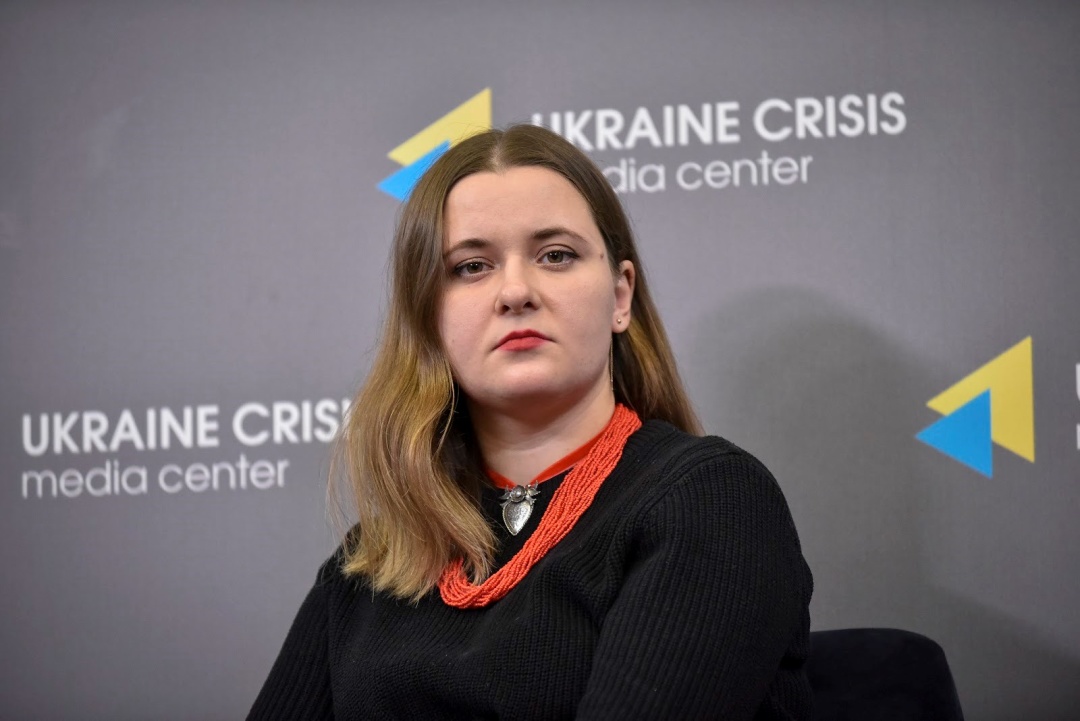
Olha Yakhno, Ukrainian language and literature teacher.
Cinema as a tool for communicating with pupils is not yet a very common practice in Ukrainian schools, but it is highly effective. Olha confirms this: “It's no secret that children generally love films, not only in extracurricular activities but also in the classroom. When we offered the schoolchildren a chance to watch a documentary about volunteering instead of a feature film, they were eager to attend.”
One of the most important practical outcomes of the project is its focus on the future. Anastasiya Rozlutska emphasized this: “When we view volunteering through the lens of responsibility, we clearly see that we are raising responsible citizens. This process starts in school. When these young individuals grow up, they will vote responsibly. Such a person will already possess a conscious sense of responsibility.”
SCHOOLCHILDREN: I THOUGHT DOCUMENTARIES WERE BORING
Schoolchildren definitely got the most impressions. In conversations, they admitted that the examples of the film protagonists inspired them and gave them the motivation to think and act. Teachers were equally impressed by the discussions and opinions shared by their pupils.
Yelyzaveta, a student, said: “I really liked the film Language. I was afraid that it would be boring and uninteresting. It turned out to be the opposite. It touches your heart and makes you think. If we want to get a grip on the Russian language in our Ukraine, then we must fight even against ourselves. And if we do not overcome ourselves, we will not be able to defeat our enemies.”
Anya, another student, reflected: “The film Euromaidan SOS reminded me of 2022, when everyone united, queued in front of the military enlistment offices, and volunteered. Unfortunately, this unity faded away by '24. The film showed me that unity is essential for our country’s development. Without unity, there will be no progress.”
Since the beginning of the war, volunteering has indeed become a part of many adults’ lives. Many people quickly shifted from a mindset of “it’s no concern of mine” to one of “not being indifferent.” Youths may or may not join various forms of volunteering. Currently, they are observing our work and our example, and will soon decide whether or not to continue this work.
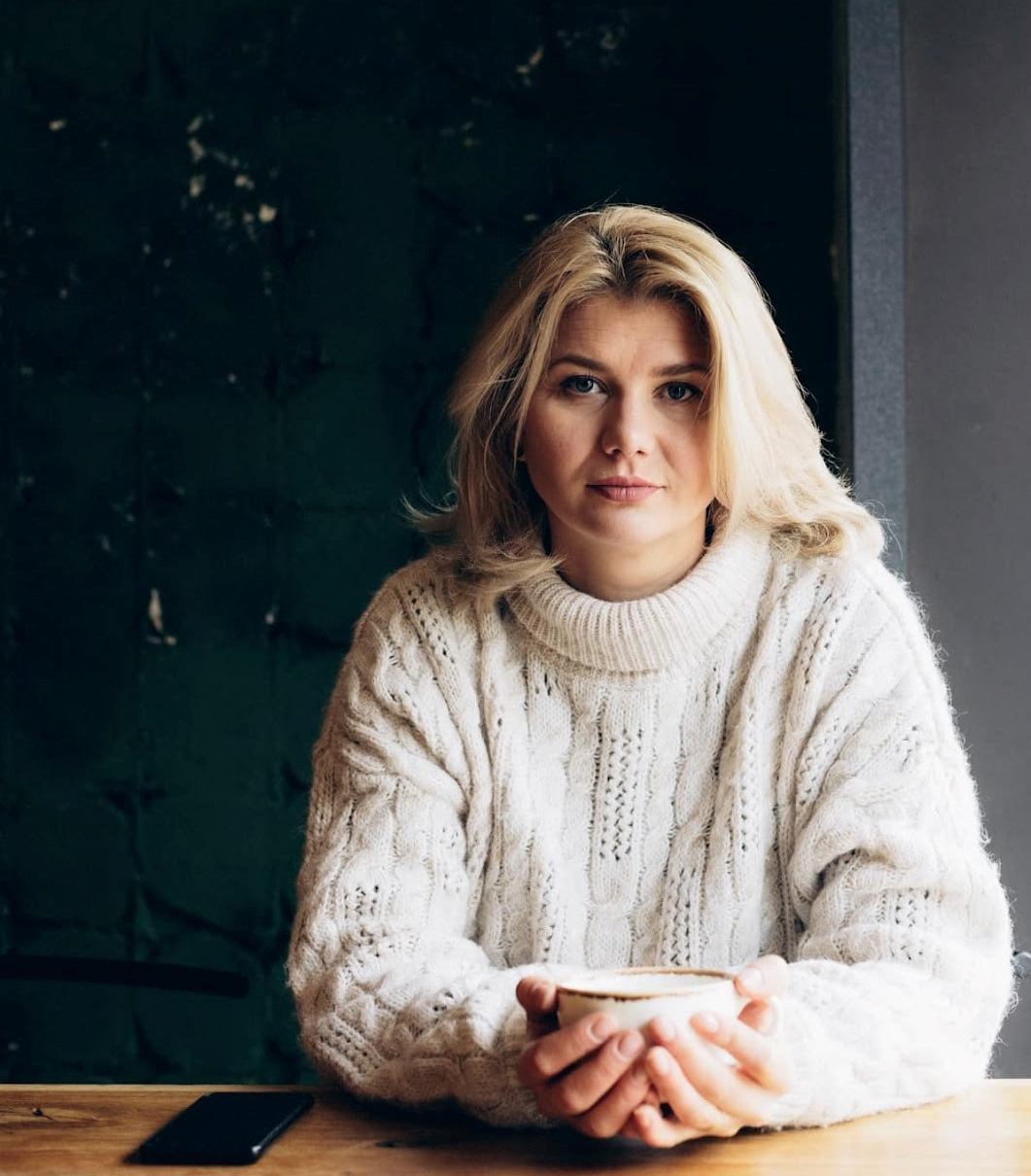
Volunteer Anastasiya Rozlutska. Photo: Anastasia Rozlutska / Facebook.
Anastasiya Rozlutska notes that the documentaries have revealed new dimensions of volunteering to pupils, ranging from supporting the military to active involvement in civic life. “The impact of such school projects is a long-term process, and the results will become evident in the years to come, when today’s schoolchildren become the leaders of tomorrow’s society.”
Author: Yaryna Skurativska, Kyiv
Photos: docudays.ua
This publication was prepared with the financial support of the German Marshall Fund of the United States of America. Its contents are the sole responsibility of the NGO Docudays and do not necessarily reflect the views of the German Marshall Fund of the United States.



